Research Internships
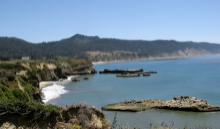
Ano Nuevo Seabirds Internship
Also listed in the Conservation tab.
Contact: Michelle, michelle@oikonos.org
Oikonos Ecosystem Knowledge seeks two highly motivated individuals to work on a seabird conservation science project at Año Nuevo Island, California, a seabird and marine mammal refuge 30 minutes north of Santa Cruz and 1km offshore. This position is aimed at early career individuals (recent college graduates or those currently enrolled in college) interested in gaining ecology, wildlife biology, and conservation experience. We encourage applications from people from diverse backgrounds and experiences, including people of all races and sexual identities, and those from traditionally underrepresented groups in the biological sciences.
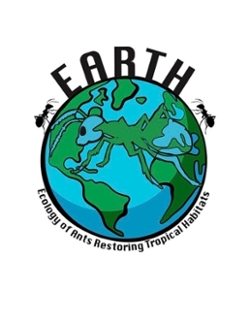
Listing also found in the Campus tab.
Contact: Christina Blebea, cblebea@ucsc.edu
Do you want entomological lab work experience? Sign up to assist Graduate Student Christina Blebea with research on ant communities in tropical forest restoration! We’re discovering how ant communities change during restoration. Students will get hands-on experience with insects in the lab, learning how to mount, measure, and identify specimens. No experience is required..If interested, fill out an application here.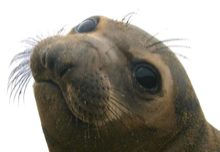
Elephant Seal Flipper Tag observations
Listing also found in Water and Marine-Related tab
Contact: Patrick Robinson (Reserve manager) Patrick.robinson@ucsc.edu
Come learn about northern elephant seals with an internship at the Año Nuevo UC Natural Reserve. Every year thousands of elephant seals haul out at Año Nuevo to molt and breed. Researchers from UCSC attach flipper tags to identify individual seals. We need your help to work with researchers to find and record information about these tagged seals. This decades-long study helps us understand the demographics of this population.
To apply for this internship, please fill out an application here!
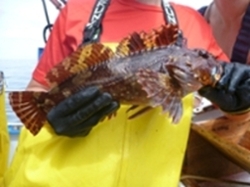
Research Internship
Listing also found in the Conservation, Water and Marine-Related, and Summer tabs.
Contact: Jake Todd, ccfrp@mlml.calstate.edu
Only available during the Summer!
Contact: Jake Todd, ccfrp@mlml.calstate.edu
CCFRP Interns gain insight into the world of marine science and valuable, hands-on experience for professional development through active participation in various forms of fieldwork, data analysis, and project support. Each summer, CCFRP conducts 12 fish sampling trips around the Monterey Bay area to survey two marine protected areas. Interns help to plan and prepare for these trips while also coming on the trips to assist with fish processing. Interns may also provide organizational, logistical, and administrative assistance to the overall Fisheries and Conservation Biology Lab at Moss Landing Marine Laboratories if opportunities with other projects are available. This unpaid summer internship is open to both undergraduate students and recent graduates.
Applications will be accepted until April 19, 2023.
For more information and to request an application, please email mlml-ccfrp@sjsu.edu.
For more information, visit the California Collaborative Fisheries Research Program's website.
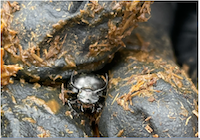
Dung Beetle Research
Contact: Suzanne Lipton, suzannelipton@ucsc.edu
Are you interested in doing fieldwork in and around Santa Cruz? Come help with this project examining how management practices and landscapes influence dung beetle abundance and diversity. Fieldwork involves going into the field to set and collect dung beetle traps. Please be comfortable with a full day in the field, cows, and cute ranch dogs. 2 or 5 credit internships are available for the Spring quarter. Reach out to
Suzanne Lipton at suzannelipton@ucsc.edu to apply.Agriculture Research
Contact: Suzanne Lipton, suzannelipton@ucsc.edu
Fonio is a grain that is indigenous to the Sahel, drought tolerant, and grows well
in nutrient poor soils. As I wrap up a greenhouse project looking at how
arbuscular mycorrhizal fungi affect its growth, I need help washing roots,
weighing plant parts, and sorting through data. If you’re interested in plant
research and want hands on experience, email me at suzannelipton@ucsc.edu
for a 2-credit internship opportunity!Research and Policy Internship
Aquafeed Decision-support Tool / Open-source Software Development
Research Internship –Suitable for Remote only Work (Zoom meetings, own computer)
Contact: Professor Anne Kapuscinski akapusci@ucsc.edu Postdoctoral Scholar, Brandi McKuin bmckuin@ucsc.edu
Aquaculture is the world’s fastest growing food sector and essential is for food security of over 1 billion resource-poor people. Conventional aquaculture diets use fishmeal and fish oil extracted from ocean-caught fish, like sardines and herring, but most of these ‘forage fish’ are edible by people and important prey for higher-trophic marine fish like tuna. About 20% of world fish catches in 2017 were used to manufacture fishmeal and fish oil and this scale of production undermines marine biodiversity, threatens food security of coastal peoples who traditionally eat these forage fish. Rising demand for fishmeal and fish oil and competition for higher value uses such as human fish oil capsules has caused price volatility problems. Novel ingredients (e.g. microalgae, single cell proteins, and insect meals) are emerging as potential substitutes for fish meal and fish oil, however, the economic and environmental impact of these alternative ingredients is unclear.
The Kapuscinski - Sarker lab in the ENVS dept is working to evaluate the economic and environmental impact of replacing fishmeal and fish oil in conventional feeds with novel ingredients such as microalgae, single cell proteins, and insect meals by developing an aquafeed decision-support tool. Interns will assist the team to develop an open-source software to assess suitability of novel feed ingredients for potential inclusion into diets for farmed fish.
Tasks may include but are not limited to review and synthesis of peer-reviewed literature as inputs to the software databases (e.g. environmental impacts, economic impacts, and feed conversion ratio), calculation of environmental impacts using life cycle assessment, calculation of economic impacts using techno-economic analysis, optimization code development for the open-source software, and website development to host the software. Interns will be expected to contribute to accurate record keeping, data collection, data entry and organization, and report writing. Successful applicants should have a proven track record of detail oriented work, quantitative skills, hold a personal interest in the work to be carried out, and be willing to learn on the fly. We will provide training to interested applicants.

Internship Opportunity
Contact: Elan Goldbart, egoldbart@refinedgenetics.co
Website: Kayagene.com
# of interns needed/Hours worked per intern: 2 interns 6-12hr eachKayagene is employing advanced techniques using genomics tools and our vast experience with breeding, to
develop improved elite hemp varieties. We are seeking technical support for our plant genomics research and
development lab. The lab tech position will assist in analytical chemistry and molecular biology. Training will include basic laboratory techniques using centrifuge, pipettors (manual and multi-channel electronic), robotic DNA/ RNA extraction, thermal cyclers for PCR, gel electrophoresis, and gas chromatography. Guided by our experienced research scientist, the intern will support research goals of finding and developing novel hemp varieties for medicinal value.
Plant Sciences Inc.
Listing also found in the Agroecology & Plants tab.
Contact: Ashlee Anciro, aanciro@plantsciences.com, (831)-728-7771 342 Green Valley Road, Watsonvile, CA 95076
Students will gain professional exposure and experience in a berry (strawberry, raspberry, blackberry, blueberry) and artichoke breeding company through wet laboratory and greenhouse settings (depending on the season). 2 and 5 Unit internships will be offered, please check the flyer for prerequisites and our website for more information.
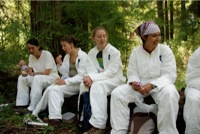
Re-census the UCSC Forest Ecology Research Plot
Contact: Greg Gilbert, ggilbert@ucsc.edu.
Help with the expansion and 5-yr re-census of the 6-ha Forest Ecology Research Plot (FERP) on the UCSC Campus Natural Reserve. The FERP is a living laboratory designed to study forest dynamics and species interactions in the mixed-evergreen forest, an is a resource for teaching and student research in ecology, evolution, and environmental sciences at UCSC.
2 Unit Internship
Listing also found in the Conservation tab.Contact: SCMR Director, Chad Moura, cwmoura@ucsc.eduThe Santa Cruz Mountain Reserve (SCMR) is a new collaboration between UC Santa Cruz’s Natural Reserve
System and regional partners in the Santa Cruz Mountains. SCMR plans to help partnership agencies with wildlife
research/inventory projects, invasive species monitoring, stream and wetland management, the impacts of wildfire
and recreation on floral and faunal communities, and the potential for other projects related to the management of
habitat and working lands in the Santa Cruz Mountains. Partnership agencies and lands within the SCMR include
Cotoni-Coast Dairies (Bureau of Land Management), San Vicente Redwoods (Sempervirens Fund, Peninsula Open
Space Trust, Save the Redwoods League, and the Land Trust of Santa Cruz County), and various State Parks within
the SC Mountains, with plans for more regional partners in the near future. Data collected from projects will help
inform land management, conservation, and general trends in regional floral and faunal populations.Internship Projects for Fall 2023:
Amphibian and Reptile Surveys
Bird Point Counts and Behavioral Studies
Woodrat Midden Mapping
Monitoring Wildfire in Forests: Continuous Forest Inventory Plots
Aquatic Benthic Macroinvertebrate and Terrestrial Arthropods Sorting and Identification
Available Shifts:
6 hour shift every week. Early morning shifts for bird point counts (6am -12pm), otherwise Midday shifts (9am -3:00pm) available, not including travel to site (usually around 20-30 minutes each way).
Options available Tuesday - Friday.
Application Process:
Please fill out the google form application if you are interested in working at SCMR!
Application link: https://forms.gle/nxoUaKf5bGJgwX8x7
Once you have filled out the application, expect an email from me (Chad Moura - Director of the Santa Cruz
Mountains Reserve) for further instruction and details. I will be interviewing candidates for the internship via 10-20 minute zoom/in person interviews if possible.Final deadline for application is Saturday, September 30th, 2023. Early applicants will start receiving
requests for interviews September 25th. Applications sent in after September 30th will not be reviewed for
Fall Quarter 2023.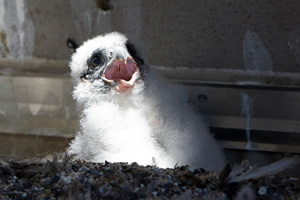
Santa Cruz Predatory Bird Research Group
Contact: Zeka Glucs, zekaglucs@ucsc.edu
The Predatory Bird Research Group is a long-standing non-profit organization at UCSC tasked with monitoring wild populations of predatory birds and promoting their conservation through education and local involvement. Interns will learn to identify the breeding raptors of Santa Cruz County and gain hands-on skills in field
observation and data collection.Participation in both Winter and Spring quarters is preferred: field observation training will take place in Winter Quarter (2 units), data collection and research activities will take place in Spring Quarter (2 or 5 units).
Leadership roles and independent research opportunities are available to students able to take the 5 unit internship in Spring Quarter.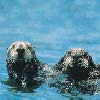
Sea Otter Research
Listing also found in Water and Marine-Related tab.
Contact: Sarah Espinosa, smespino@ucsc.edu
Research on sea otters is mandated by the U.S. Endangered Species Act and the Marine Mammal Protection Act. For California, this research is the responsibility of the USGS Western Ecological Research Center. The research program is headquartered at the Santa Cruz Field Station, whose offices are located at the Center for Ocean Health at the University of California, Santa Cruz. Interns will be trained to participate in radio tracking studies of sea otter behavior and population dynamics. Specific duties include visiting locations throughout the study area by vehicle in order to record the location and reproductive status of tagged study animals. Otters will be located using radio receivers attached to an antenna, and identified using high powered spotting telescopes. Interns will record the exact position of individual otters using GPS and rangefinders. Other data recorded will include number of other otters sighted with the study animal, reproductive status (whether or not females have pups), behavioral states, and environmental conditions. Resights for each study animal will be obtained each day, weather permitting. Interns may also assist with capture/tagging operations, and have opportunities for boat-based work.
Please send a cover letter and resume/CV to werc@ucsc.edu. Contact Sarah Espinosa at smespino@ucsc.edu with specific questions.

USGS Western Ecological Research Center- Santa Cruz Field Station
Contact: Laney White, Josh Adams, Lmwhite@usgs.gov
The US Geological Survey - Western Ecological Research Center’s seabird biology team in Santa Cruz is seeking volunteer interns to assist with ongoing projects. We offer course credit options, flexible schedules, and unique learning opportunities. Our research focuses on various aspects of seabird ecology, including the potential impacts of renewable energy development on marine bird species.
During Winter/Spring 2023-2024 up to 3 interns will primarily support digital image processing. Our lab has conducted photographic surveys off California and used machine learning to find seabirds and marine mammals in the images. We are seeking motivated students to assist with reviewing the machine learning predictions in the output imagery. As an intern, you will learn to use a cloud-based image annotation tool, manage databases, and identify a variety of wildlife found in California waters. Learn more about the project here or from the website.
Interns may also assist with other projects in the lab, including work on a database of breeding birds in
the Hawaiian Islands. This internship can be conducted remotely. We strongly encourage people from underrepresented
groups to apply.Requirements for all interns:- Interest in marine biology, specifically seabird ecology
- Interest in scientific methods, and how methodologies develop through time
- Interest and/or experience in database management and Microsoft Access
- Experience in reading and analyzing scientific research papers
- Proficiency working on PC’s running Windows operating system
- Attention to detail and willingness to learn new skills
Listing can also be found under the Campus, Environmental Education , and the Agroecology and Plants tab.
Contact: Cate Luna and Kayden Bryant
Email: sssinfo-group@ucsc.edu , or village-gardens-leadership-group@ucsc.edu
Address: 7044 Village Rd, Santa Cruz, CA
Available for Fall, Winter, Spring
We are collaborating with Res Life and Groundskeeping at the Village to revitalize the B Quad Garden, which is the former home of PICA. We are working to create an educational program in the legacy of PICA that provides a place for student gardeners to take care of the garden and build community. We are hoping to establish this program as a 2-unit ENVS internship opportunity for next quarter. Will it be possible to add our program to the list of ENVS internships? I noticed the google form is closed, I hope it is not too late. I have attached a new agency packet that has all of our information.Seed Spoon Science is a research group on campus at UCSC that is involved in
revitalizing the Village B Quad garden, formerly home to PICA, or the Program in
Community Agroecology. The goal with this internship is to build it into a student group
who can build on the legacy of PICA in taking care of the Village Gardens and creating a
community space.Here is some more information about this opportunity. Interns will be:- Propagating seeds, creating crop plans, seed saving
- Pruning perennial plants and taking cuttings from perennial plants
- Planting out garden beds with edible crops
- Harvesting food crops and distributing food to students
- Garden-related building (building pest-proof covers for raised beds)
- Cultivating native ecosystems in garden settings
- Collaborating with Village Res life to host community events for Village residents
- Collaborating with researchers using the space to collect data on how much food that water from rain tanks can produce
- Collaborating with researchers building fog catchers that rest on top of garden beds and capture water
